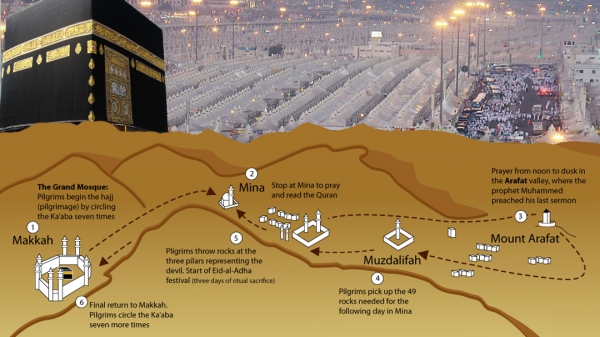End of Time as per Islam
Tick tock, tick tock. Time is always ticking away, never stopping for anyone or anything. But have you ever wondered about the concept of time in Islam? How can it fit into the excellent plan of things? Well, get ready to dive deep into the realm of Islamic beliefs as we explore the end of time as per Islam. From understanding its importance to preparing for what lies ahead, this article will take you on a captivating journey through the sands of time. So fasten your seatbelts and join us as we unravel the mysteries surrounding the end times in Islam!
End of Time as per Islam

Understanding the concept of time in Islam is crucial to comprehending its significance when it comes to the end of days. In Islamic teachings, time is seen as a precious gift from Allah, meant to be valued and utilized wisely. Muslims are encouraged to make the most of their time on Earth by engaging in righteous deeds and striving towards spiritual growth.
The end of time, also known as the Day of Judgment or Qiyamah, holds immense importance in Islamic beliefs. It is believed that this day will mark the ultimate culmination of human existence, where all individuals will be held accountable for their actions during their lifetime. This belief serves as a powerful reminder that each moment we spend on Earth has eternal consequences.
According to Islamic tradition, there are numerous signs that indicate the approach of the Day of Judgment. These signs include major natural disasters, moral degradation within society, and widespread conflicts among nations. While these signs may seem daunting, they serve as reminders for believers to stay vigilant and strive towards righteousness amidst an ever-changing world.
Preparing for the end times according to Islam involves leading a life filled with faith and good deeds. Muslims are encouraged not only to fulfill their religious obligations but also engage in acts of kindness towards others. By living a righteous life grounded in love and compassion, believers can prepare themselves both spiritually and morally for what lies ahead.
Living a fulfilling life while anticipating the end times requires striking a balance between worldly responsibilities and spiritual pursuits. Muslims are reminded not to become too attached or consumed by material possessions but rather focus on seeking closeness with Allah through prayer, reflection, and remembrance.
In conclusion (not conclusive), understanding the concept of time in Islam provides insight into its profound significance when it comes to preparing for the end times. By valuing every second granted by Allah Almighty and utilizing it purposefully in pursuit of righteousness, one can lead a meaningful life while eagerly awaiting what lies beyond this temporal realm.
Understanding the concept of time in Islam

Understanding the concept of time in Islam plays a significant role in shaping the beliefs and practices of Muslims. In Islamic teachings, time is viewed as a precious resource that should be used wisely to fulfill one’s obligations towards Allah and fellow human beings.
Islam emphasizes the idea that every moment counts and should not be wasted. Time is seen as a gift from Allah, which must be utilized effectively for spiritual growth and development. This understanding encourages Muslims to engage in acts of worship, such as prayer, fasting, and charity, to make the most out of their time on earth.
Additionally, Islam teaches that time is an integral part of the journey towards the afterlife. It highlights the temporary nature of this worldly life and stresses on preparing for eternity in paradise. Muslims believe that how they spend their time on earth will determine their fate in the hereafter.
Moreover, Islam teaches believers to prioritize their responsibilities within specific timescales. For instance, performing daily prayers at designated times demonstrates discipline and obedience to Allah’s commands.
Understanding the concept of time in Islam goes beyond mere awareness; it involves actively utilizing each moment to draw closer to Allah and fulfill one’s purpose in life. By recognizing its importance, Muslims strive to make every second count by engaging in righteous deeds while maintaining a balance between fulfilling worldly duties and seeking eternal rewards.
The importance of time in Islamic teachings

One of the fundamental principles emphasized in Islamic teachings is the importance of time. Time is seen as a precious resource that should not be wasted or taken for granted. Muslims are encouraged to utilize their time wisely, recognizing that it is a gift from Allah.
In Islam, every moment is considered an opportunity for worship and seeking blessings. The Prophet Muhammad (harmony arrive) said, “Exploit five preceding five: your childhood before your advanced age, your wellbeing before your disease, your abundance before your poverty, your free time before you become occupied, and your life before death.”
This hadith highlights the fleeting nature of time and urges believers to make the most out of each stage in their lives. It serves as a reminder to value and prioritize our responsibilities towards Allah and others.
Islam teaches that wasting time on frivolous activities or engaging in harmful deeds can have negative consequences both in this world and the hereafter. Muslims are advised to engage in acts of worship such as prayer, recitation of Quranic verses, remembrance of Allah (dhikr), acquiring knowledge about Islam, giving charity, and serving humanity.
Additionally، punctuality holds great significance in Islamic practices. Being timely for prayers demonstrates discipline and respect towards one’s commitments to Allah.
Ultimately، understanding the importance of time allows Muslims to live purposefully with intentionality، making positive contributions within society while working towards attaining success both spiritually and worldly.
Beliefs about the end of time in Islam

Beliefs about the end of time in Islam revolve around the concept of the Day of Judgment, also known as Yawm al-Qiyamah. Muslims believe that this day will mark the end of creation and bring forth a period of accountability for all individuals.
According to Islamic teachings, on this momentous day, Allah will resurrect every human being who has ever lived, from Adam to the last person on earth. Each individual will be held accountable for their actions and deeds during their lifetime.
Muslims believe that numerous signs will occur before the Day of Judgment arrives. These signs include natural disasters, social unrest, moral decay, and wars among nations. It is believed that these events are indicative of a world in decline and nearing its ultimate end.
One significant sign mentioned in Islamic texts is the appearance of Imam Mahdi, a righteous leader who will emerge before the return of Jesus (Isa) to restore justice and unity among mankind. His arrival is seen as a precursor to major global changes leading up to the Day of Judgment.
Additionally, Muslims believe in an event called Dajjal or Antichrist – a false messiah with extraordinary powers who will try to deceive humanity. The Prophet Muhammad warned his followers about this figure and emphasized staying steadfast in faith amidst his trials.
The belief in life after death and judgment serves as motivation for Muslims to lead virtuous lives based on Islamic principles. It encourages them not only to fulfill their religious obligations but also engage actively in acts of charity, kindness towards others, seeking knowledge, and promoting justice throughout their lives.
In anticipation of these events, Muslims are encouraged to constantly seek repentance for their sins and strive towards improving themselves spiritually. They are reminded not to become complacent or negligent with regards to their duties as servants of Allah.
Signs of the Day of Judgment

As Muslims, we believe that the end of time is an inevitable reality. The signs leading up to the Day of Judgment are mentioned in various Islamic teachings and scriptures. These signs serve as a reminder for us to always be prepared and strive towards righteousness.
One of the major signs is the appearance of Dajjal, also known as the Antichrist. He will come with great deception, claiming to be a prophet and performing miracles. It is important for believers to recognize his falsehood and stay steadfast in their faith.
Another sign is the coming of Imam Mahdi, who is believed to be a righteous leader chosen by Allah to establish justice on earth before the final hour arrives. His arrival will bring about a period of peace and prosperity.
Other signs include natural disasters such as earthquakes, famines, and widespread corruption. There will also be an increase in immorality and disregard for religious values.
It’s important not to get caught up in fear or speculation about these signs but rather use them as motivation to strengthen our faith and engage in good deeds. We should focus on fulfilling our obligations towards Allah by practicing kindness, compassion, honesty, and maintaining strong bonds with family and community members.
Only Allah knows when exactly these events will occur so it’s crucial that we live each day with mindfulness and gratitude. By striving towards righteousness every day, we can find solace knowing that whenever the end times may approach – we have lived a life pleasing to Allah.
Preparing for the end of time according to Islam

Preparing for the end of time according to Islam is a concept deeply ingrained in the faith. Muslims believe that this worldly life is temporary, and that there will come a day when it will all come to an end. It is important for believers to understand the signs of the Day of Judgment and take steps to prepare themselves spiritually.
One way to prepare for the end times is by striving towards righteousness and good deeds. This includes fulfilling our obligations towards Allah, such as performing daily prayers, giving charity, and observing fasts during Ramadan. These acts help purify our souls and strengthen our connection with Allah.
Additionally, seeking knowledge about Islamic teachings and understanding them can greatly aid in preparing for the end times. By learning about what has been revealed in the Qur’an and following the example set by Prophet Muhammad (peace be upon him), we can align ourselves with Allah’s guidance.
Another aspect of preparation involves reflecting on our own actions and seeking forgiveness for any wrongdoings or transgressions we may have committed. Repentance plays a crucial role in Islam as it allows us to seek forgiveness from Allah and turn back towards Him.
Furthermore, maintaining strong ties with family, friends, and community members is emphasized in Islam as a means of support during challenging times. Strengthening these bonds not only brings joy into our lives but also helps create unity among believers.
Living a life of moderation while avoiding excessive indulgence or materialism can help cultivate contentment within oneself. Understanding that this world is temporary encourages Muslims to focus on their spiritual growth rather than being consumed by worldly desires.
In conclusion,
preparing for the end of time according to Islam requires believers to strive towards righteousness through acts of worship, seeking knowledge about their faith, repenting from past mistakes, maintaining strong relationships,and practicing moderation.
By doing so, Muslims hope to attain closeness with Allah and find peace in anticipation of the end times.
How to live a fulfilling life in anticipation of the end times

Living a fulfilling life in anticipation of the end times is an essential aspect of Islamic teachings. As Muslims, we believe that this world is temporary and will eventually come to an end. Therefore, it becomes imperative for us to lead a purposeful and meaningful existence.
One way to live a fulfilling life in anticipation of the end times is by seeking knowledge and understanding our faith deeply. Islam provides us with guidance on how to navigate through various aspects of life, including relationships, ethics, and spirituality. By continuously learning about our religion and implementing its teachings into our daily lives, we can find true fulfillment.
Moreover, developing strong connections with fellow believers can also contribute to living a fulfilling life in preparation for the end times. Engaging in acts of kindness, showing compassion towards others, and fostering unity within the Muslim community are all ways in which we can strengthen these bonds.
Additionally, focusing on self-reflection and self-improvement plays a crucial role in preparing ourselves for the end times. Taking time each day to assess our actions, seek forgiveness for any wrongdoings or mistakes committed, and striving towards personal growth helps us align ourselves closer to Allah’s guidance.
Furthermore, engaging in regular worship practices such as prayer (Salah), fasting (Sawm), giving charity (Zakat), and performing Hajj strengthens one’s connection with Allah SWT. These acts not only purify our souls but also remind us of our ultimate purpose – worshipping Allah alone.
Lastly but most importantly – maintaining hope even during difficult times is essential when living a fulfilling life while anticipating the end times. Recognizing that trials are part of this worldly journey enables us to approach them with patience and steadfastness. Trusting Allah’s plan brings peace amidst chaos while providing reassurance that ultimately everything will be accounted for on the Day of Judgment.
In conclusion,
By seeking knowledge about Islam, Building strong connections within the Muslim community, Engaging in self-reflection and self-improvement, Performing regular acts of worship.
Conclusion
In this article, we have explored the concept of the end of time as per Islam. Understanding the significance of time in Islamic teachings is crucial for believers to lead fulfilling lives and prepare for what lies ahead.
Islam emphasizes the importance of making the most out of our limited time on Earth. It encourages us to use our time wisely, seeking knowledge, performing good deeds, and strengthening our relationship with Allah.
Beliefs about the end times vary across different interpretations within Islam. However, there are common signs that indicate the approach of the Day of Judgment. These signs include societal upheaval, natural disasters, moral decline, and an increase in false prophets.
Preparing for these events involves both physical and spiritual readiness. Muslims should strive to fulfill their duties towards God and humanity while also taking care of their physical well-being. They should be vigilant in maintaining their faith amidst trials and tribulations.
Living a fulfilling life in anticipation of the end times requires finding a balance between worldly pursuits and devotion to Allah. It means striving for success not only in material possessions but also in spiritual growth and righteousness.
As believers, we must remember that our ultimate goal is not just earthly gratification but attaining salvation in the hereafter. This mindset helps us prioritize eternal rewards over temporary pleasures.
In conclusion,
Understanding Islam’s perspective on time allows individuals to live purposefully by recognizing its value as a gift from Allah. By preparing ourselves spiritually and physically for what lies ahead, we can navigate through uncertain times with strength and resilience while remaining hopeful for everlasting peace promised by Islam.
Share this post:

